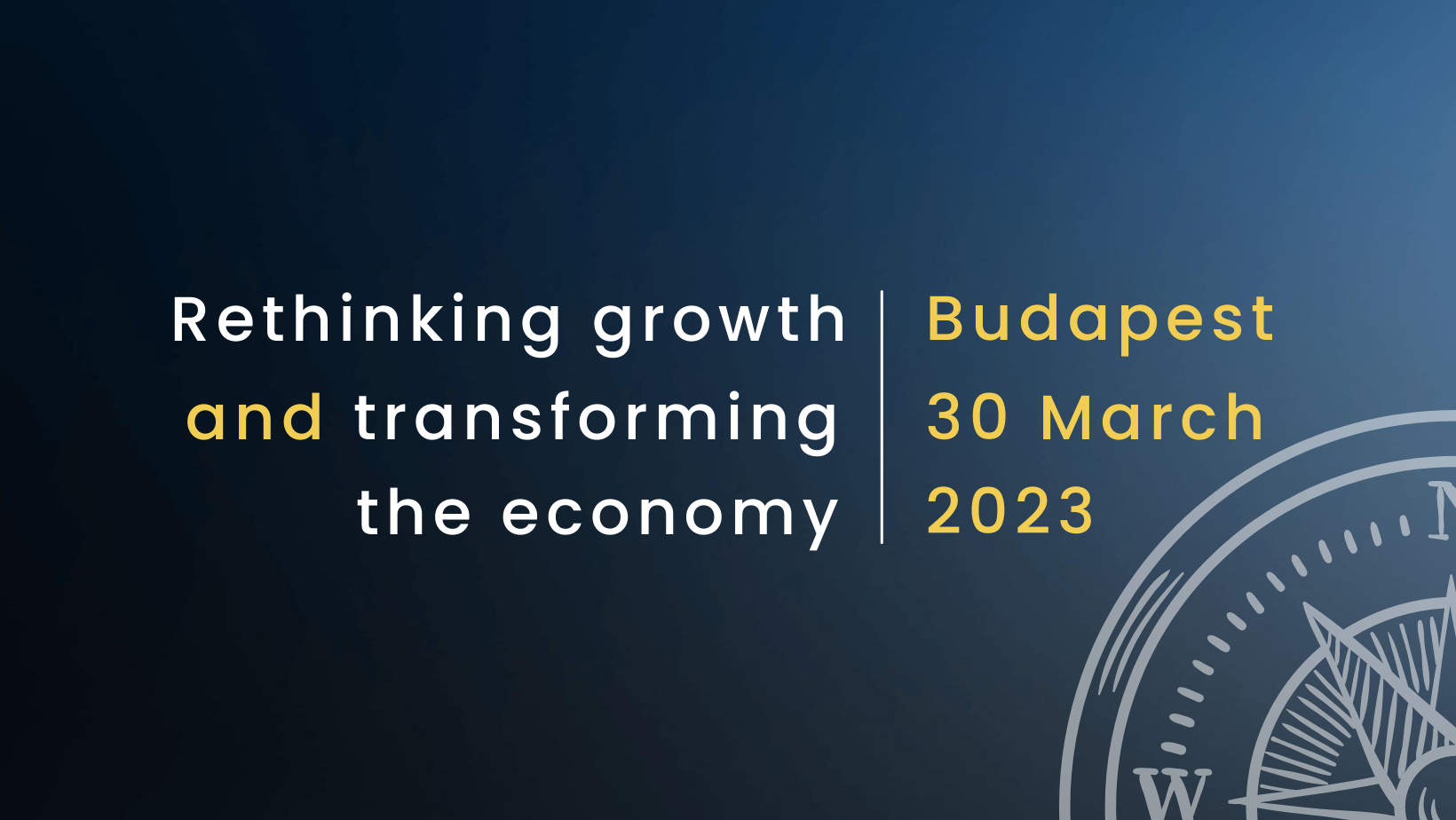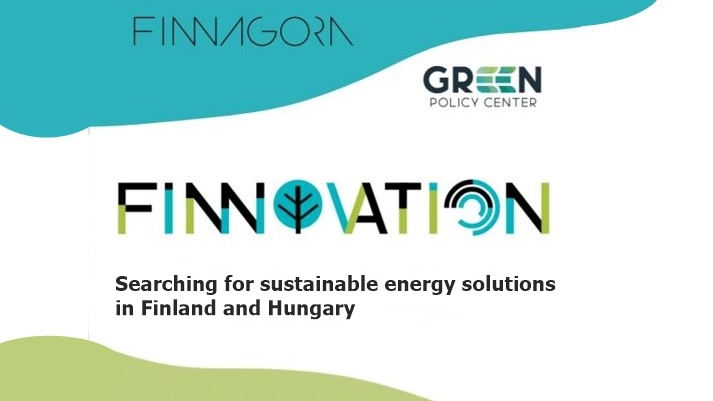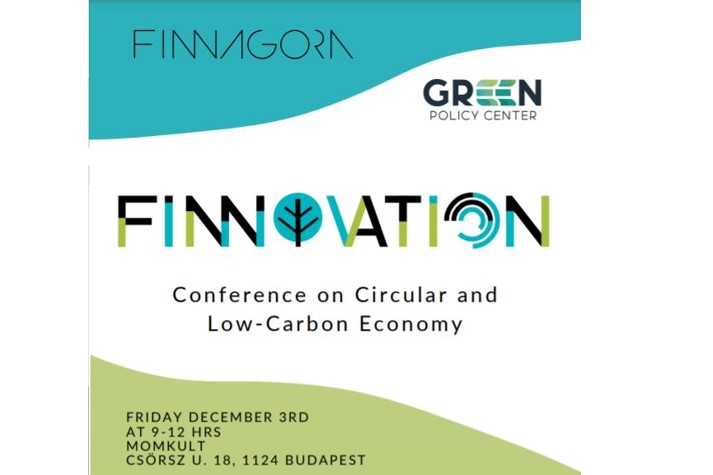Rethinking growth and transforming the economy – a special one-day event focused on sustainable finance and business in Budapest!
The International Sustainable Finance Centre (ISFC) in Partnership with the Green Policy Center and the PWC Hungary are hosting a special one-day in-person event focused on sustainable finance and business on 30 March at Eiffel Palace, Budapest.
Don’t miss out on this opportunity to listen in on thought-provoking discussions on sustainable finance and strategies to accelerate green investments and public-private partnerships.
Agenda
08:30 – 09:00 | Registration
09:00 – 09:15 | Welcome remarks
09:15 – 09:30 | Opening keynote
09:30 – 10:30 | The evasive transition: powering a new energy landscape that supports business competitiveness
A year after Russia’s invasion of Ukraine, the energy discussion remains at the top of the political and business agendas. We need different, better energy grids and improved electricity markets, with better cross-border integration across Europe. Changing the current energy mix and grid set up will require a lot of investment and public private partnerships. In addition, the transition in energy and industrial sectors needs to be sped up.
- What are the hard truths about Europe’s energy mix and electricity markets?
- How can we improve the financing of energy infrastructure in Europe?
- What can be done better by the different actors?
- How can we solve the slow speed of energy transition, while also tackling competitiveness issues?
10:30 – 11:30 | Coffee break
11:30 – 12:00 | Keynote presentation
12:00 – 13:00 | The EU Sustainability shift: an opportunity or a regulatory burden?
The EU’s Sustainable Finance Agenda has been both praised and criticised. Yet it represents the most advanced attempt to tidy up the messy sustainable finance standardisation space, with its effort to create a scientifically based taxonomy of sustainable economic activities, with the standardisation of EU Green Bonds, and standardisation of corporate disclosures through the CSRD. As the number of new regulations and disclosure requirements keep growing, businesses have raised concerns about disproportionate burdens that disadvantage European companies when compared to ones outside the EU, for example in Asia and the US.
- How to operationalise ESG integration for better financing – what practical examples exist?
- What is changing in the financial sector (banks and investors) that might affect future business financing?
- How can the elusive “opportunity” be operationalised in practice? How is it done in other EU countries?
- How are companies adjusting their strategies and business models considering CSRD and SFDR requirements?
- Can heavy industry sectors outcompete China and the US, or will there be a danger of companies relocating to less demanding jurisdictions?
13:00 – 14:15 | Lunch break
14:15 – 14:30 | Keynote speech
14:30 – 15:30 | Sustainability in the real estate sector: building for the future or future-proofing buildings?
The high inflation and high energy prices in Europe have created even more uncertainty for businesses across the EU countries. At the same time, the discussions about energy efficiency and housing markets have heated up, with most governments under pressure to improve the energy performance of the building stock. For developers and construction companies, there are new challenges and demands related to decarbonisation, with pressures to reduce energy use and carbon emissions. This leads to questions about whether new strategies and financing models are necessary for the real estate sector.
- What are the best practices for financing more “green” or sustainable real estate projects?
- How can real estate companies do future proofing of their business models?
- Which actors can play a more active and positive role in the real estate ecosystem?
- What major changes will take place at the European and national level regulation-wise, and what impact are these likely to have?
- What are the key demands of existing and potential future clients?
15:30 – 16:00 | Coffee break
16:00 – 16:15 | Keynote speech
16:15 – 17:00 | Banking in times of uncertainty
In 2023, the banking sector faces unique challenges. The European energy transition and its greater focus on energy efficiency presents both a challenge and an opportunity. As political, business, and societal priorities change, banks face pressures to adapt their approaches and products. The need to better manage ESG, and especially climate-related risks, is rising – to reduce exposures to businesses that might not be viable in the near to medium term. At the same time, European supervisors are embarking on an effort to improve their skills and ability to supervise sustainability-related issues, including greenwashing, climate stress testing, and other important elements that will affect banks.
- What can banks do better to manage ESG and climate-related risks?
- What are the main barriers to the integration of climate-related evaluations?
- What are good examples from Europe and globally of risk management and development of new practices or products to take advantage of the “green shift”? What actors could help more to drive the green shift?
17:00 – 17:30 | Closing remarks and conclusions of the day
17:30 | Evening reception
This is a preliminary agenda. The final and more detailed agenda will be available closer to the event date. More information about the event and registration is available here:




